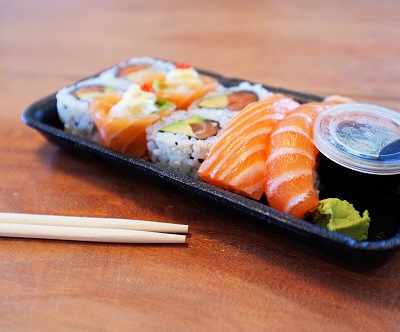Polymer additives are entering a new era given their new abilities to solve processing challenges.Corbion introduced its PATIONIC® polymer additives to the Middle East market at Arabplast 2017, where the company focused on expandable polystyrene (EPS) applications.
If left untreated, expandable polystyrene beads can acquire static charges, leading to flowability problems and inhomogeneous mold filling. PATIONIC glycerol esters improve the processability of expandable polystyrene beads and are particularly well-suited to low density products, due to the consistent distribution and very small size of the particles.
Frederik Feddes, Industry Director Chemical Specialties at Corbion explained the advantages of this new anti-static agent. “Corbion’s PATIONIC® 909 acts as an anti-static agent to improve the processability of expandable polystyrene beads. If expandable polystyrene beads acquire static charges, this can lead to flowability problems and inhomogeneous mold filling. PATIONIC 909 is added prior to the pre-expansion stage to reduce the agglomeration of expandable polystyrene beads, which may hamper the screening process. It also contributes to uniform mold filling, to save time and improve the quality of the finished product.”
Corbion’s synthesis chemists and applications engineers work closely with expandable polystyrene producers to identify additional ways in which its high quality polymer additives can act as processing aids, saving time throughout the foaming process. As a result, PATIONIC 909 and another grade, PATIONIC 919, help to facilitate cooling, making it quicker and easier to release the final block of expandable polystyrene from the mold.
Glycerol esters are chemical combinations of glycerine and fatty acids and occur naturally as glycerol triesters. Corbion manufactures mono and mono/diesters and triesters with various degrees of saturation, to deliver optimum performance depending on the application.

Products in Corbion’s full PATIONIC portfolio are used as antistats, lubricants, acid/catalyst neutralizers, dispersants, mold release agents, processing aids and antifogging agents and improve the processability of polymers in the polypropylene, polyethylene, PVC and engineering thermoplastics industries.
Corbion’s PATIONIC polymer additives are marketed to customers as processing aids for expandable polystyrene applications. The consistent distribution of the particles make PATIONIC glycerol esters ideal for low density products, with end uses including building insulation and electronic goods packaging.
Mr.Feddes stated that Corbion products are marketed through a worldwide network of sales offices and distributors. “”We already have customers in the Middle East, albeit in other industries. We will be using the insights gathered by our sales team to ensure we are offering high performance and competitive products in line with customer requirements, so that we can continue to build Corbion’s presence in this important region.”
Expanding portfolio
For the rest of Asia, Corbion has been focusing on the production of bio-based and biodegradable plastics. The company has started construction of a new PLA bioplastics polymerization plant at the existing Corbion site in Rayong, Thailand. Upon completion in 2018, it will be able to produce the complete Luminy® portfolio of PLA neat resins: from standard PLA to innovative, high heat resistant PLA.
The new 75 kTpa PLA plant is constructed using Corbion's and Sulzer's proprietory polymerization technology, and key equipment will be supplied by Sulzer Chemtech Ltd (Switzerland). In addition to the construction of this new PLA polymerization plant, Corbion will expand its existing lactide plant in Thailand by 25 kTpa. With this expansion, Corbion will be able to serve its current and future lactide customers. The lactide expansion will also enable the production of a wider range of lactides than is currently possible. The targeted start-up date for the PLA polymerization plant and the lactide expansion is in the second half of 2018.
PLA is one of the first renewable, biodegradable polymers able to compete with existing polymers. It is a biobased, biodegradable polymer obtained by fermenting renewable resources (sugar or starch) to produce lactic acid. PLA is mainly used for food packaging, disposable tableware and textiles, as well as in numerous other industries such as oil and gas, electronics, automotive and 3D printing. PLA is a fast-growing polymer market segment, with an estimated average annual growth rate of 10 to 15% to 2025.
Air Max 90 Fireflies













